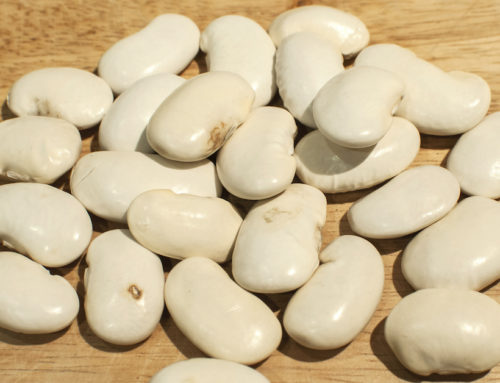Three decades ago, pharmacist and cancer researcher Ross Pelton, PhD, described a certain combination of two ingredients as “the most potent memory enhancing therapy yet discovered.”
Today, with a few tweaks to the formula, Frank Shallenberger, MD, a pioneer and leader in the field of integrative medicine, makes an even bolder claim.
Patients with early memory loss can have their memory restored “to what it was five or ten years ago.”
That sure got my attention!
Multiple Effects on The Brain
Racetams are a group of cognitive-enhancing pharmaceuticals (smart drugs) that share a particular chemical structure and have similar effects on the brain.
The first racetam to be discovered (there are now 19) was called piracetam. It’s a derivative of GABA, one of the brain’s most important neurotransmitters.
Writing in Mood Food & Smart Pills, Dr. Pelton describes piracetam as having a number of desirable effects.
- Protects the brain from damage caused by oxygen starvation
- Increases the rate of metabolism and energy levels in brain cells
- Enhances learning and memory in people who are memory-impaired
- Protects against memory loss from physical injury and chemical poisoning
- Facilitates the transfer of information between the two halves of the brain
- Increases protein synthesis in the brain to boost learning and memory
- Is completely safe and non-toxic
In 2002, a review of 19 double-blind, placebo-controlled studies in elderly patients suffering from dementia or cognitive impairment concluded that “the results of this analysis provide compelling evidence for the global efficacy of piracetam…”
Combining it with a nutrient produces even better results.
Making a Smart Drug Even Smarter
After a highly successful rodent study, researchers at New York University decided to replicate it in Alzheimer’s patients. For both studies they combined piracetam with choline. This helps boost another key neurotransmitter in the brain – acetylcholine.
Every patient saw small improvements in most cognitive measures, but three out of ten were particularly lucky. They witnessed dramatic clinical enhancements, far greater than when using either substance alone. For instance, on one test verbal memory increased by 70%.
Dr. Shallenberger believes prevention is best if you want to enjoy good brain health. In his practice he looks to correct any hormone and nutritional deficiencies, recommends various health supplements, and suggests a diet high in protein and vegetables and low in sugars.
He also urges his patients to address a lack of fitness with a 20 to 30 minute aerobic program three or four days a week.
Sometimes You Need More
But patients already suffering memory loss need more than a preventative approach. They need a treatment that can restore brain function to normal.
And that’s where piracetam comes in.
He describes the drug as a “proven memory enhancer,” not just in his own practice but in Europe, where it’s considered more of a food supplement than a drug because it’s so safe.
But as good as it is when used with choline, there’s a way to make piracetam even more effective, and that’s to replace choline with the more concentrated phosphatidyl choline. This passes into the brain more effectively and is proven to elevate sagging levels of acetylcholine.
Add a Few Cups of Joe
In addition he recommends caffeine, because it further boosts the production of this neurotransmitter.
Typically, a patient with memory loss will take three 800 mg capsules of piracetam – quite a large dose — three times a day for the first week only, then two capsules twice a day. Instructions are to drink a cup of coffee with each dose, and to take 2000 mg of phosphatidyl choline a day – also a large dose — in divided doses.
According to Dr. Shallenberger, “It often takes several weeks of this treatment before the patient sees a substantial improvement in memory.”
After five or six months piracetam can be discontinued and coffee replaced with green tea if required. Phosphatidyl choline is continued at 1000 mg per day.
Available or not?
My quick reaction is, “Don’t do this at home.” Piracetam is a popular nootropic (brain supplement) but it IS a drug. It sounds fascinating, and I know it’s popular with a lot of people, old and young, who want to “be all they can be.” I haven’t tried it myself.
According to Wikipedia, it is not FDA-approved in the United States for sale as a food supplement OR as a prescription drug, but it seems you can get it on the internet.
All the same, I wouldn’t do the doses Dr. Shallenberger recommends except under his direction of that of another physician who has experience with the treatment. Is it safe in smaller doses for long-term use by people who don’t have dementia? I don’t know, but it seems a lot of them think so.
As for the other part of the combo, phosphatidyl choline, it’s an extremely powerful form of choline, which is a B vitamin. This form of choline can be just right for people with dementia, but may be too much for a healthy person if you just want to boost memory and cognition. That’s the reason our sister company, Green Valley Natural Solutions, put a milder form of choline called Citicoline in its Brain Vitality Plus
- Mood Food & Smart Pills by Ross Pelton, Doubleday 1989
- https://www.ncbi.nlm.nih.gov/pubmed/826948
- https://www.ncbi.nlm.nih.gov/pubmed/12006732
- https://www.secondopinionnewsletter.com/Health-Alert-Archive/View-Archive/14028/Regain-Your-Memory-With-This-LittleKnown-and-Safe-Drug.htm







